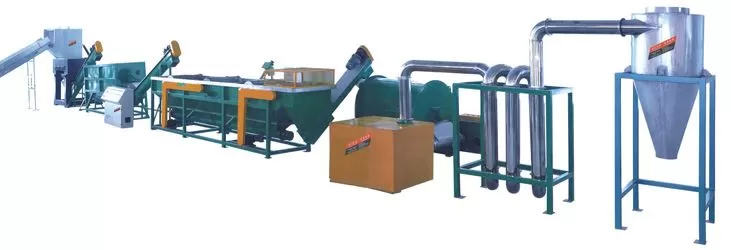Plastic pollution is a global issue. Have you ever walked on a beach and seen plastic bottles and bags scattered everywhere, feeling a pang of frustration? Belgium is no exception. However, Belgium has implemented a series of impressive measures to tackle this problem.

Belgium addresses plastic pollution through innovative policies and technologies. These measures not only help protect the environment but also improve resource utilization efficiency. Let’s dive into how Belgium is achieving this.
Plastic pollution control isn’t achieved overnight. Yet, Belgium’s efforts are yielding remarkable results. Let’s explore these measures in more detail.
Why Does Belgium Prioritize Plastic Pollution Control?
Belgium understands the severe impact of plastic pollution on the environment. Plastic waste not only mars the landscape but also threatens marine life and ecosystems. Thus, the Belgian government has decided to take proactive measures to address this issue.
According to recent studies, plastic pollution results in the deaths of millions of marine animals annually. These alarming statistics have driven Belgium to implement stricter control measures.
How Does Belgium’s Plastic Recycling System Operate?
Belgium’s plastic recycling system is considered one of the most advanced in the world. It employs cutting-edge sorting technologies and efficient recycling processes. From residential waste segregation to industrial plastic waste management, every step is meticulously managed.
The latest recycling reports show that Belgium’s plastic recycling rate has surpassed 70%. This achievement is attributed to the combined efforts of the government, businesses, and residents.
How Do Government Policies Drive Plastic Pollution Control?
The government plays a pivotal role in controlling plastic pollution. The Belgian government has enacted a series of regulations to limit the use of single-use plastics, encourage the development of eco-friendly alternatives, and impose strict penalties for violations.
For instance, the Belgian Environmental Law mandates that supermarkets cannot offer free plastic bags, and the food service industry must use biodegradable materials. These policies effectively reduce the production of plastic waste.
How Is Technological Innovation Applied in Plastic Pollution Control?
Belgium leads in technological innovation as well. Utilizing high-tech methods, Belgium has achieved efficient recycling and reuse of plastic waste. Technologies such as AI and robotics are used for automatic sorting and processing of plastic waste, significantly enhancing recycling efficiency.
According to Tech Magazine, some recycling plants in Belgium have achieved full automation, increasing recycling efficiency by over 50%.
What Role Do Businesses Play in Plastic Pollution Control?
Businesses also play a crucial role in controlling plastic pollution. Belgian companies not only comply with government regulations but also actively develop eco-friendly products to reduce plastic usage. For example, beverage companies are starting to use biodegradable bottles, and packaging companies are developing reusable materials.
According to the Corporate Environmental Report, Belgian companies are increasing their investment in environmental protection each year, reflecting their commitment to social responsibility.
How Do Citizens Participate in Plastic Pollution Control?
Citizen participation is a key factor in Belgium’s successful plastic pollution control. Through education and awareness campaigns, the government has raised public environmental consciousness. Belgian residents actively participate in waste segregation and respond to government calls to reduce the use of single-use plastics.
According to a social survey, over 80% of Belgian residents actively engage in environmental protection activities, demonstrating strong public support for these efforts.
What Is the Future Outlook for Plastic Pollution Control?
Despite significant achievements in plastic pollution control, Belgium is not resting on its laurels. Moving forward, Belgium will continue to enhance technological innovation, implement stricter environmental policies, and further raise public environmental awareness.
According to the Environmental Forecast, Belgium plans to increase its plastic recycling rate to over 90% within the next five years and gradually achieve zero plastic waste emissions.
Conclusion
Belgium’s plastic pollution control measures offer valuable lessons and inspiration for other countries worldwide. Through the collective efforts of the government, businesses, and citizens, we believe that the future environment will be much improved. Let’s all contribute to environmental protection!
